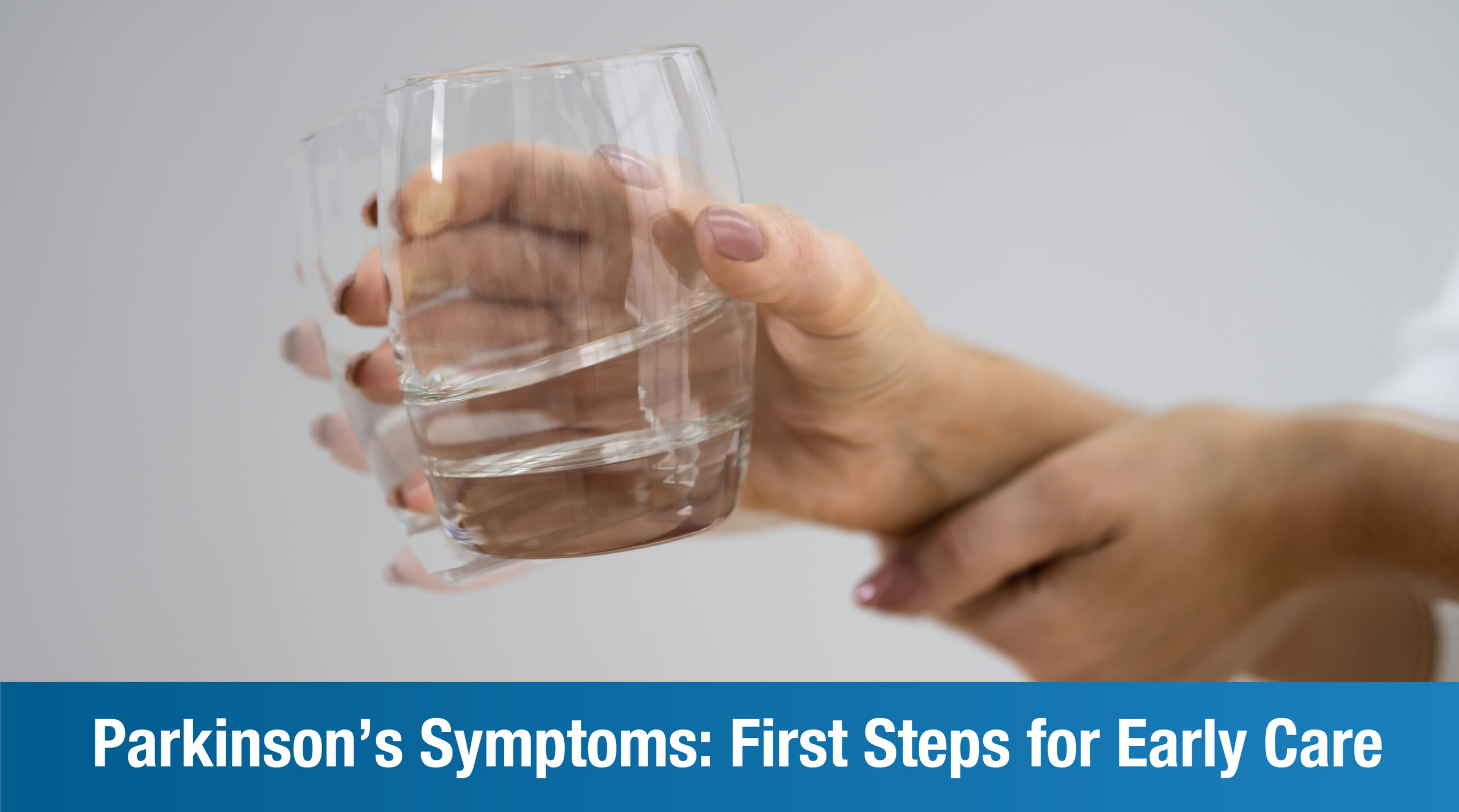
Like Alzheimer’s Disease, Parkinson’s Disease is a progressive neurological disorder that is mostly diagnosed in people over the age of 60. Although there is no specific treatment, the condition can be greatly managed with preventive strategies that include early intervention and disease detection. Knowing what signs to monitor for and what actions to take is paramount in slowing the progression of the disease and improving quality of life.
What Is Parkinson’s Disease and Its Early Signs?
Parkinson’s often starts subtly and varies widely from person to person. Early signs may include:
- Tremors in one hand or limb
- Stiffness in the arms, legs, or trunk
- Slowed movements (bradykinesia)
- Difficulty with balance or frequent falls
- Slurred or soft speech
- Smaller handwriting
- Decreased sense of smell
In rare cases, Parkinson’s can also affect children and young adults, presenting as tremors, stiffness, or difficulty with coordination and fine motor skills.
When to Consult a Doctor for Parkinson’s Symptoms
If you notice any of the symptoms above, it’s important not to panic. Schedule a consultation with a general physician first. Be ready to share:
- When symptoms began
- How often they occur
- Their intensity and progression
The physician may refer you to a neurologist, who will conduct additional assessments of balance, muscle tone, reflexes, and motor coordination. You may also be asked questions about mood, sleep, memory, and sense of smell.
What to Expect During a Parkinson’s Disease Diagnosis
At Plexus, a comprehensive diagnostic process may include:
- Medical history review
- Neurological assessment
- Physical exam
- MRI or CT scan
- DaTscan (dopamine transporter scan)
- Blood tests or lumbar puncture (in specific cases)
- Unified Parkinson’s Disease Rating Scale (UPDRS)
A dopamine challenge test may also be performed to observe whether your symptoms improve after taking medication.
Effective Strategies for Managing Early Parkinson’s Symptoms
Being diagnosed with Parkinson’s is overwhelming, but taking control early can greatly enhance quality of life. Key strategies include:
Give Yourself Time to Adjust
Take time to process your diagnosis. Talk to your doctor, research, or seek support from counselors or peer groups.
Track Your Symptoms
Maintain a journal to track symptom patterns, triggers, and medication effectiveness.
Explore Treatment Options
At Plexus, we offer personalized treatment plans that may include:
- Cell therapy to slow disease progression
- Physical therapy to improve mobility
- Speech therapy to address communication issues
- Lifestyle guidance for emotional and physical well-being
Build a Support Network
Involve your family and close friends early. If caregiving is needed later, their familiarity with the situation will make things easier.
Stay Physically Active
Aim for at least 150 minutes of moderate exercise per week—walking, cycling, or strength training can be especially beneficial.
Keep Mentally Engaged
Pursue hobbies, read, participate in group activities, or continue working if possible. Mental engagement is key to well-being.
How Plexus Supports Parkinson’s Disease Diagnosis and Treatment
Our specialized Parkinson’s programs in Bangalore and Hyderabad are designed to provide end-to-end support. From precise diagnosis to tailored rehabilitation plans, our team ensures:
- Early and accurate evaluation
- Multidisciplinary therapies
- Continuous monitoring and lifestyle support
Get in touch with us to know more
WhatsApp: +91 89048 42087
Hyderabad: +91 78159 64668 | Bangalore: +91 93555 33404
FAQ
Can you recover from Parkinson’s disease?
Parkinson’s cannot be cured, but symptoms can be managed effectively with medication, therapy, and lifestyle changes.
Can Parkinson’s symptoms go away?
Symptoms may improve with treatment, but they do not disappear permanently.
What are the signs that Parkinson’s is getting worse?
Increased difficulty with walking, worsening tremors, frequent falls, and reduced speech clarity.
Do Parkinson’s symptoms improve with early treatment and therapy?
Yes. Starting therapy early helps preserve mobility, reduce complications, and enhance daily function.
Can early diagnosis slow the progression of Parkinson’s disease?
Yes. Early diagnosis allows timely treatment that can help delay symptom progression and reduce long-term disability.
About the Author
Dr. Na’eem Sadiq
Founder & Chief Neurologist, Plexus Neuro Centre
Dr. Na’eem Sadiq is a globally renowned neurologist and neuropsychiatrist with decades of experience in treating complex neurological disorders. His work has been recognized internationally through numerous research papers on topics such as Demyelinating Polyneuropathy, Multiple Sclerosis, Epilepsy, and Migraine, positioning him as one of India’s leading authorities in the field.










